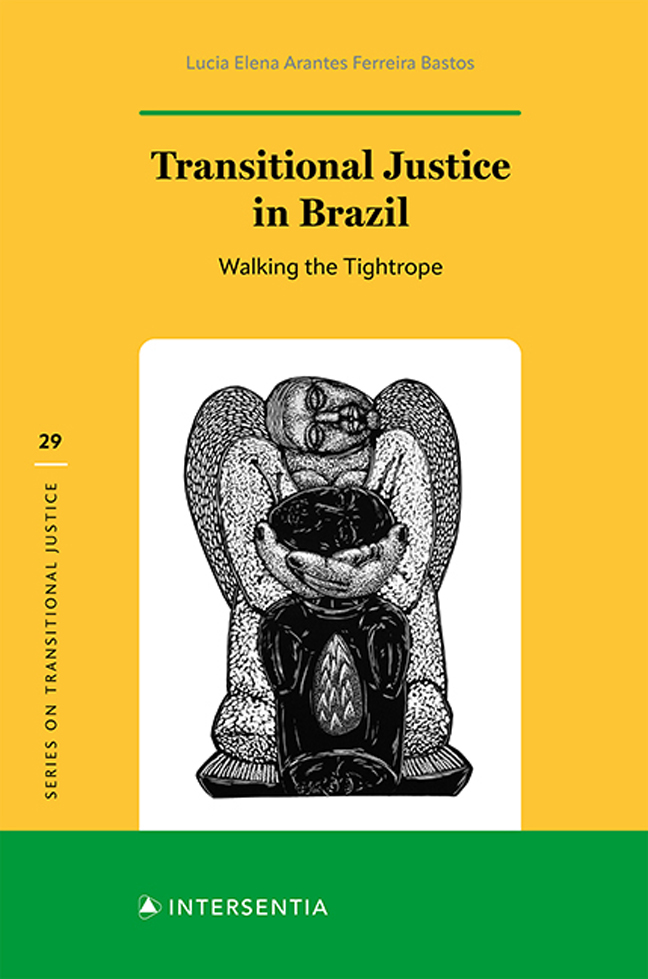Book contents
- Frontmatter
- Foreword
- Acknowledgments
- Contents
- List of Acronyms and Abbreviations
- 1 Introduction: Historical Perspectives from the Brazilian Dictatorship and Transitional Justice Measures
- Part I The Intersection Between Amnesty, the Rule of Law, and Authoritarian Legacies
- Part II Steps Towards Reparations, Accountability, and Truth
- Part III Complex Forms of Reparations, Accountability, and Truth-Seeking: Actors Beyond Agents of the State
- Bibliography
- Index
- About the Author
3 - Victims’ Reparations Program
Published online by Cambridge University Press: 29 February 2024
- Frontmatter
- Foreword
- Acknowledgments
- Contents
- List of Acronyms and Abbreviations
- 1 Introduction: Historical Perspectives from the Brazilian Dictatorship and Transitional Justice Measures
- Part I The Intersection Between Amnesty, the Rule of Law, and Authoritarian Legacies
- Part II Steps Towards Reparations, Accountability, and Truth
- Part III Complex Forms of Reparations, Accountability, and Truth-Seeking: Actors Beyond Agents of the State
- Bibliography
- Index
- About the Author
Summary
“For each beloved hour
Sharp pittances of years,
Bitter contested farthings
And coffers heaped with tears”.
In general, shortly after a violent regime and following a transitional period there is pressure to prosecute those responsible for the large-scale crimes of the abusive regime. However, in many cases, prosecutions do not occur within the time and in the manner expected, mainly because of the existence of amnesty laws or a new administration’s lack of the material and legal means to carry out prosecutions after a period of chaos and conflict. Hence, in light of the prosecutorial gap that such obstacles produce, Transitional Justice frameworks commonly suggest hybrid practices like truth commissions, lustrations (purge of government officials) and reparations programs in order to meet reasonable expectations of justice. From the above list, in addition to truth commissions, the most common gap-filling mechanism has been reparations, which are intended to provide not only compensation, but also accountability through recognition and perhaps redemption for perpetrators.
In the Brazilian case, as a result of the 1979 Amnesty Law and the delayed implementation of an official truth commission (which only occurred in the 2012 – 2014 period), the main Transitional Justice initiatives from 1995 – 2014 consisted of two different reparations programs. Over the years, it has been said that such plans constituted the “structural axis” of Brazilian Transitional Justice. Moreover, as will be observed in this chapter, the benefits distributed by such programs were both material and symbolic, taking the form of cash payments, social welfare entitlements (such as government pensions), reinstatement to prior employment, career promotions, public apologies, outreach work, memorials, educational initiatives, book-length publications, and funding for documentary films.
The origins of such reparations programs are in the 1988 Constitution, which, in addition to recognizing the duty of the State to promote fundamental human rights in article 5, briefly references the legacy of violence during the dictatorship period in the obligation it imposes on the State to make reparations to victims of the previous regime, as mentioned in the Ato das Disposiçõ es Constitucionais Transitórias (ADCT) (“List of Transitional Constitutional Provisions”).
- Type
- Chapter
- Information
- Transitional Justice in BrazilWalking the Tightrope, pp. 47 - 80Publisher: IntersentiaPrint publication year: 2023

